
Most people are aware of the precarious state of the planet as we forge into the 21st Century: forest fires tearing across parched landscapes, houses destroyed by flooding, and record after record broken as summer temperatures soar. Today, the world largely understands the problems and increasingly appreciates the need for solutions to the climate crisis, biodiversity loss and rising social inequality. This awareness evokes fear, panic and perhaps hope in all of us.
But what about the people on the ‘front lines’ of environmental research: those who produce and translate knowledge and evidence to help us make the best decisions when dealing with environmental crises? They are painfully aware of humanity’s precarious situation and have made it their life’s work to make things better. How, then, do they feel about the state of the planet? Did they ever imagine things would be this way today? What do they fear or hope the future holds for us and our descendants?
This project explores the emotional connections that science researchers and communicators have with the planet and their work to preserve it. Through in-depth conversations and a co-design process influenced by social science methods, these frontline workers in the global fight against environmental crises have chosen three adjectives to describe their feelings as they stand on the brink, and have selected their own images that they feel capture these words.
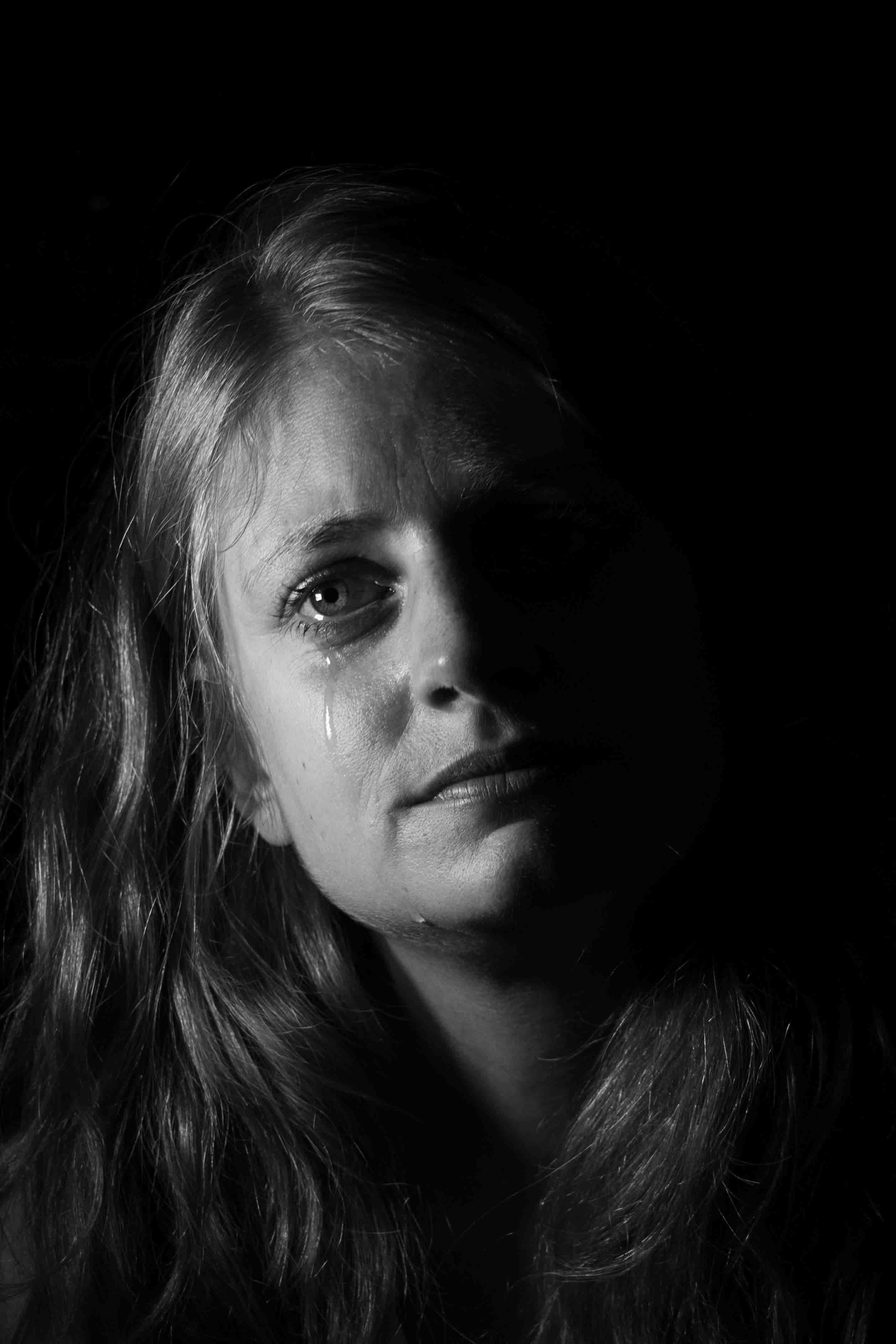
Anneli has a background in environmental science and sustainability and is a science communicator.
Anguished: It is immediately obvious that the state of the planet is affecting her. She is deeply empathetic and explains that this year has been a personal tipping point for her, ignited by the heatwaves in Western North America. She is very aware of what humanity is beginning to endure from climate change, and she feels this pain keenly. She tells me that the anguish she feels comes in waves and feels visceral, like a loss, like grief: “it’s really happening!” she whispers.
Awestruck: But she also feels in awe of mother nature – we have changed things so much that the entire planet is responding: “it’s like a sick body reacting, and it’s fascinating to see what it can do - what it can do to people”, she says.
Passionate: She explains that hope is not enough, but maybe passion is: “we have to have passion to turn things around. We need to make people passionate about the planet”.
She feels it is not hope that we need right now - that she cannot feel hope. “We need a force to carry on, more than hope. It needs to stem from love, from inside ourselves. I wish I could say that I feel hope, but I don’t. We need action!”
Anguished: It is immediately obvious that the state of the planet is affecting her. She is deeply empathetic and explains that this year has been a personal tipping point for her, ignited by the heatwaves in Western North America. She is very aware of what humanity is beginning to endure from climate change, and she feels this pain keenly. She tells me that the anguish she feels comes in waves and feels visceral, like a loss, like grief: “it’s really happening!” she whispers.
Awestruck: But she also feels in awe of mother nature – we have changed things so much that the entire planet is responding: “it’s like a sick body reacting, and it’s fascinating to see what it can do - what it can do to people”, she says.
Passionate: She explains that hope is not enough, but maybe passion is: “we have to have passion to turn things around. We need to make people passionate about the planet”.
She feels it is not hope that we need right now - that she cannot feel hope. “We need a force to carry on, more than hope. It needs to stem from love, from inside ourselves. I wish I could say that I feel hope, but I don’t. We need action!”
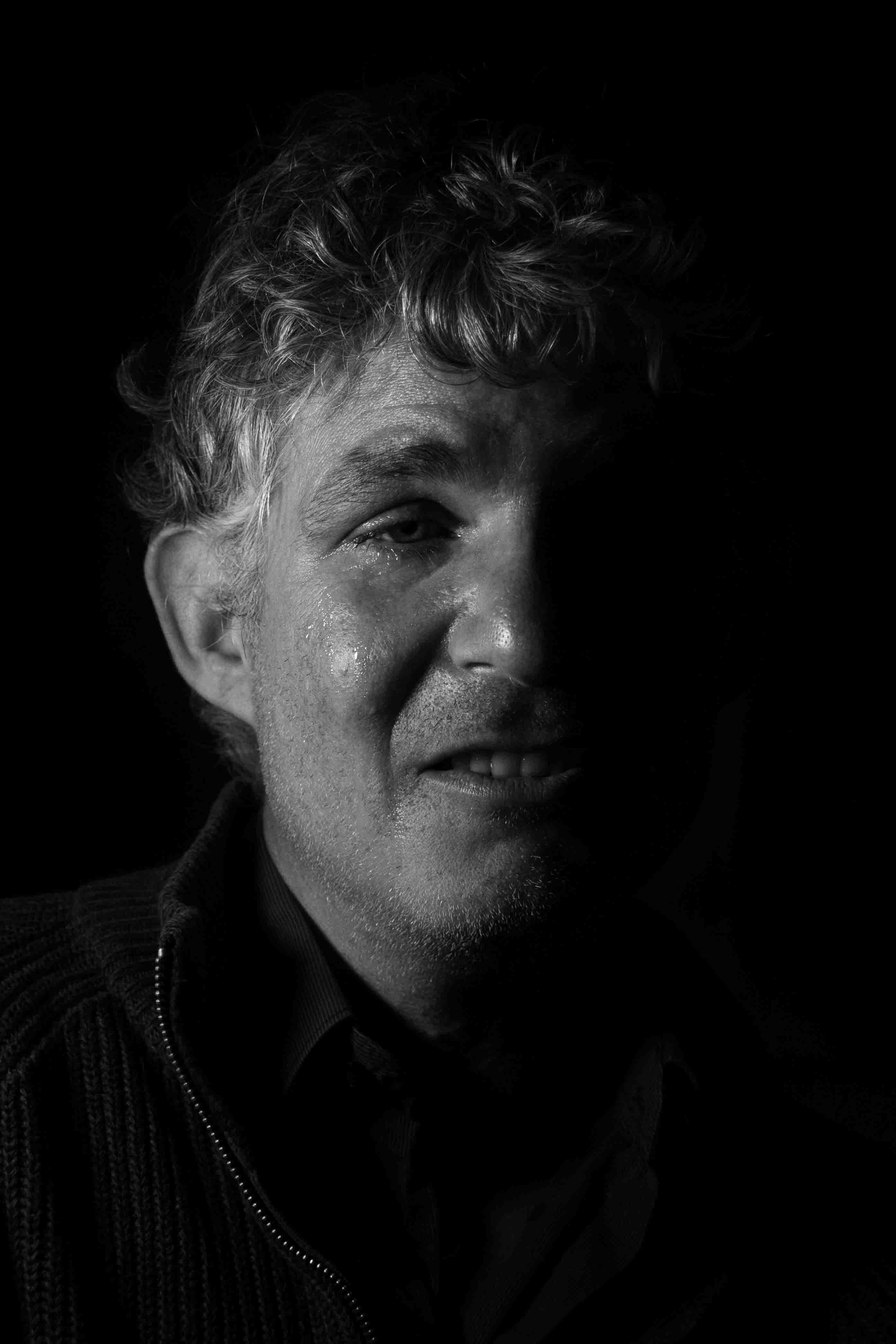
Charlie is a conservation scientist, writer and environmental activist working with societal responses to environmental crises.
Angry: He is deeply angered by what he feels has been done to the planet, “we had this beautiful world that has been taken from us – and much of the damage has been done knowingly, through greed.” He says that the anger can be quite motivating, “we need to act thoughtfully, but I don’t think anger is a particularly damaging emotion – it’s quite an empowering one.”
Disbelieving: “I cannot f*cking believe that we had everything, and we allowed it to be destroyed. How can that be?!” he asks, incredulous. The discussion is tinged with sadness, “it’s not shock, I literally can’t describe it. It’s the most outrageous and nonsensical thing.” He says he feels this deeply as a scientist, “you spend your entire life coming up with answers, and people choose not to use them. We have the answers – we know what to do. But as a society we just don’t do it. We could sort all of it out if we just decided to dedicate adequate resources to it. It’s just completely incomprehensible. It just doesn’t make any sense at all.”
Scared: “I feel really scared. I’m not just scared about what’s happening to the world. What scares me the most is not the collapse of our societies. What scares me is the rise of fascism and what that could mean for me as an activist”, he explains, beginning to cry. I cry with him. “Perhaps I didn’t realise how scared I was. Maybe it’s just there bubbling away all the time… But I don’t think it’s healthy – it’s not helping my resilience at all. If there’s one trend in me over the years, it’s a big decline in my emotional resilience. I’m not tough anymore.”
I ask him if he feels hope, “Yes and no – I feel more hope than I’ve ever felt before, thanks to the rise of activism. Yes, the problems are so much worse – but we’re much closer to change now. The only hope we have is people power – either we take our planet back or we lose it.” He continues, “but I don’t like the idea of hope – hope is related to faith, it’s magical – somehow it will be ok. For a lot of people hope can be disempowering – ‘it will be OK, so I don’t need to fight’. But I don’t need hope to fight. I understand that hope is motivational and empowering on an individual level, but on a societal level, hope is really dangerous.”
Angry: He is deeply angered by what he feels has been done to the planet, “we had this beautiful world that has been taken from us – and much of the damage has been done knowingly, through greed.” He says that the anger can be quite motivating, “we need to act thoughtfully, but I don’t think anger is a particularly damaging emotion – it’s quite an empowering one.”
Disbelieving: “I cannot f*cking believe that we had everything, and we allowed it to be destroyed. How can that be?!” he asks, incredulous. The discussion is tinged with sadness, “it’s not shock, I literally can’t describe it. It’s the most outrageous and nonsensical thing.” He says he feels this deeply as a scientist, “you spend your entire life coming up with answers, and people choose not to use them. We have the answers – we know what to do. But as a society we just don’t do it. We could sort all of it out if we just decided to dedicate adequate resources to it. It’s just completely incomprehensible. It just doesn’t make any sense at all.”
Scared: “I feel really scared. I’m not just scared about what’s happening to the world. What scares me the most is not the collapse of our societies. What scares me is the rise of fascism and what that could mean for me as an activist”, he explains, beginning to cry. I cry with him. “Perhaps I didn’t realise how scared I was. Maybe it’s just there bubbling away all the time… But I don’t think it’s healthy – it’s not helping my resilience at all. If there’s one trend in me over the years, it’s a big decline in my emotional resilience. I’m not tough anymore.”
I ask him if he feels hope, “Yes and no – I feel more hope than I’ve ever felt before, thanks to the rise of activism. Yes, the problems are so much worse – but we’re much closer to change now. The only hope we have is people power – either we take our planet back or we lose it.” He continues, “but I don’t like the idea of hope – hope is related to faith, it’s magical – somehow it will be ok. For a lot of people hope can be disempowering – ‘it will be OK, so I don’t need to fight’. But I don’t need hope to fight. I understand that hope is motivational and empowering on an individual level, but on a societal level, hope is really dangerous.”
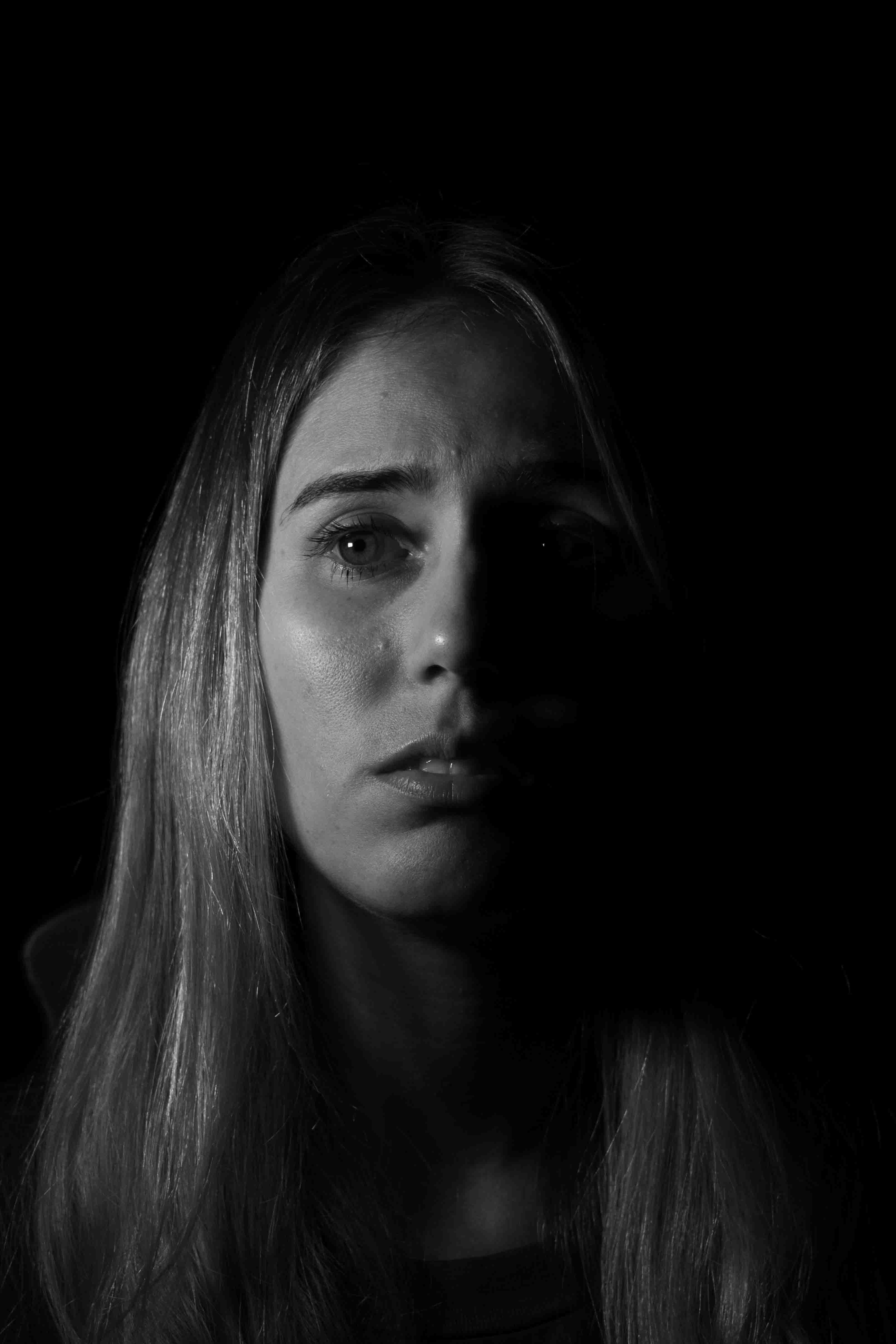
Aline is an environmental researcher working in sustainability, with a focus on forest restoration and soil science.
Desolated: She tells me that her heart is in pieces every time she reads the news. “Now, with the war, taking away people’s rights, and the threat of nuclear pollution – I feel a tightness in my chest when I think about the state of the planet”, she tells me. “We are walking backwards in terms of conservation and ecosystem protection in Brazil - I’m very deeply upset with the situation”. At the same time, she tells me that she hopes things will get better in the next few years.
Distressed: She tells me about the recent bad flooding in Brazil, “It’s getting more and more frequent – so many people have lost their homes, their belongings, their lives. This makes me feel really anxious”. Although she works with environmental issues, she explains that sometimes she feels that there’s not much more she can do. “That makes me even more anxious”.
Committed: “Every time I go to the forest, it’s a privilege for me – being there, I feel inspired”, she explains. “I’m so grateful for nature to offer me that moment. I love forests, for me it’s one of the best places to be”. She says she will fight to protect everything – “forests, rivers, oceans. I want people to feel what I feel when I’m in contact with nature. I will do my part to commit myself to spreading actions and words to protect nature more and more”.
I ask her if she feels hope. “Yes. It’s easy for me to answer. Maybe because I live somewhere with forest and lots of natural resources, but I feel a lot of inspiration and I do feel hope.”
Desolated: She tells me that her heart is in pieces every time she reads the news. “Now, with the war, taking away people’s rights, and the threat of nuclear pollution – I feel a tightness in my chest when I think about the state of the planet”, she tells me. “We are walking backwards in terms of conservation and ecosystem protection in Brazil - I’m very deeply upset with the situation”. At the same time, she tells me that she hopes things will get better in the next few years.
Distressed: She tells me about the recent bad flooding in Brazil, “It’s getting more and more frequent – so many people have lost their homes, their belongings, their lives. This makes me feel really anxious”. Although she works with environmental issues, she explains that sometimes she feels that there’s not much more she can do. “That makes me even more anxious”.
Committed: “Every time I go to the forest, it’s a privilege for me – being there, I feel inspired”, she explains. “I’m so grateful for nature to offer me that moment. I love forests, for me it’s one of the best places to be”. She says she will fight to protect everything – “forests, rivers, oceans. I want people to feel what I feel when I’m in contact with nature. I will do my part to commit myself to spreading actions and words to protect nature more and more”.
I ask her if she feels hope. “Yes. It’s easy for me to answer. Maybe because I live somewhere with forest and lots of natural resources, but I feel a lot of inspiration and I do feel hope.”
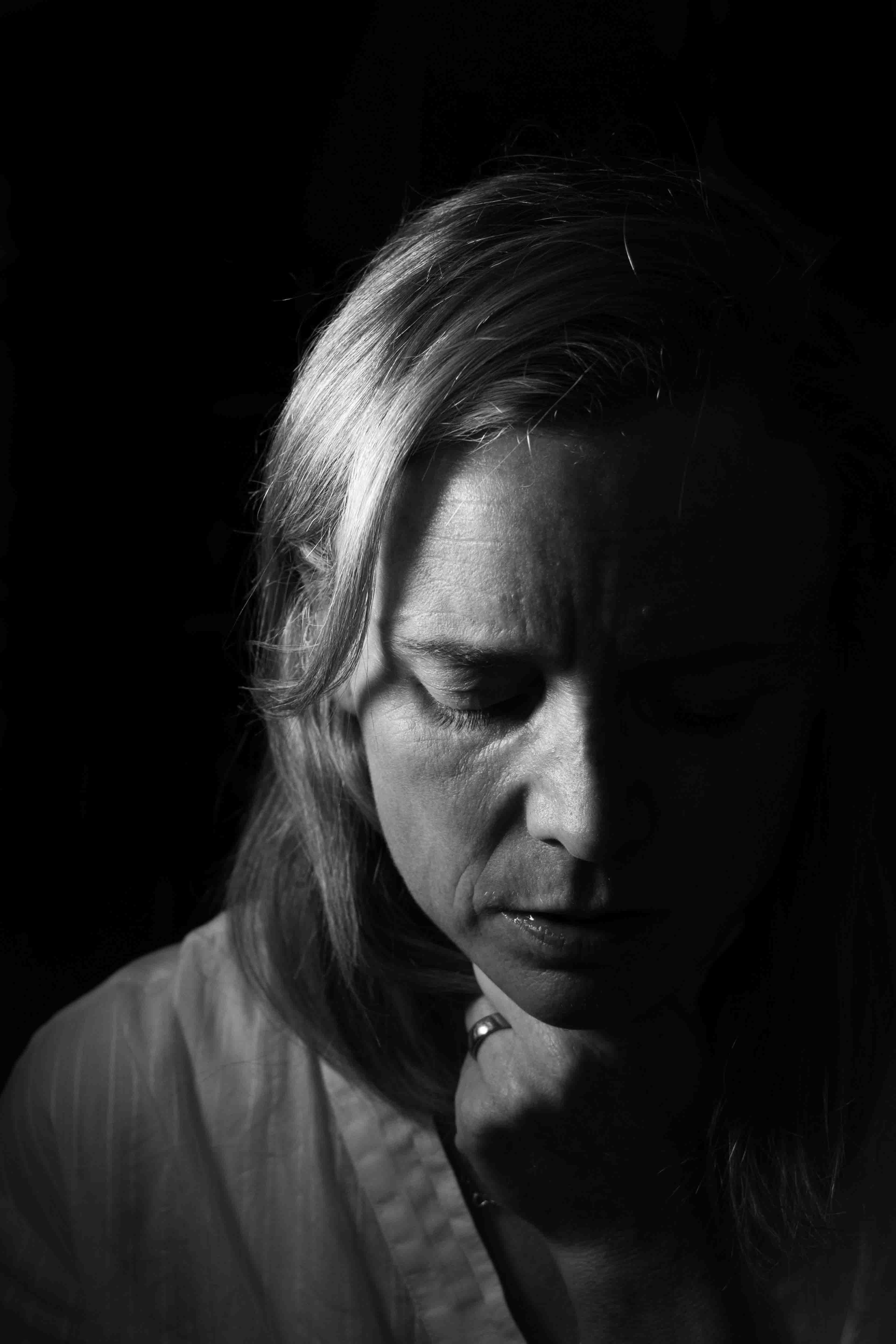
Fiona is a social scientist working to understand what factors affect people’s choices, particularly with respect to access to energy and energy poverty.
Ashamed: She explains to me that the state of the planet and the climate crisis is increasingly featuring in her discussions with her research participants in Africa; something that often feels like a bigger issue than the objective of her work on cookstoves and energy, leaving her sometimes feeling useless. At the same time, she feels ashamed that the research and practice community hasn’t come further and done more: “I cringe sometimes when I write about the current state of knowledge in research papers – we know this and yet we see no action. It’s repetitive and depressing”.
Outraged: She tells me that she feels outraged – “it’s an explosive, disruptive shock. But perhaps it’s a positive thing in a way, she explains: “it feels like it might lead to some kind of shift, some watershed, or a catalyst”.
Determined: Her children help her to be determined, though – she can’t give up on them. They have embraced buying second hand and understand why, she explains - clearly humbled but proud. The children have even been a driving force to reduce the family’s impacts on the environment.
When I ask her about the future, she explains she doesn’t feel hope: “the word hope is not good enough – it’s far away and doesn’t imply action. Hope won’t drive me forwards. But being outraged, having a sense of purpose, I need something that drives me not to give up, but I don’t want to call it hope.”
Ashamed: She explains to me that the state of the planet and the climate crisis is increasingly featuring in her discussions with her research participants in Africa; something that often feels like a bigger issue than the objective of her work on cookstoves and energy, leaving her sometimes feeling useless. At the same time, she feels ashamed that the research and practice community hasn’t come further and done more: “I cringe sometimes when I write about the current state of knowledge in research papers – we know this and yet we see no action. It’s repetitive and depressing”.
Outraged: She tells me that she feels outraged – “it’s an explosive, disruptive shock. But perhaps it’s a positive thing in a way, she explains: “it feels like it might lead to some kind of shift, some watershed, or a catalyst”.
Determined: Her children help her to be determined, though – she can’t give up on them. They have embraced buying second hand and understand why, she explains - clearly humbled but proud. The children have even been a driving force to reduce the family’s impacts on the environment.
When I ask her about the future, she explains she doesn’t feel hope: “the word hope is not good enough – it’s far away and doesn’t imply action. Hope won’t drive me forwards. But being outraged, having a sense of purpose, I need something that drives me not to give up, but I don’t want to call it hope.”
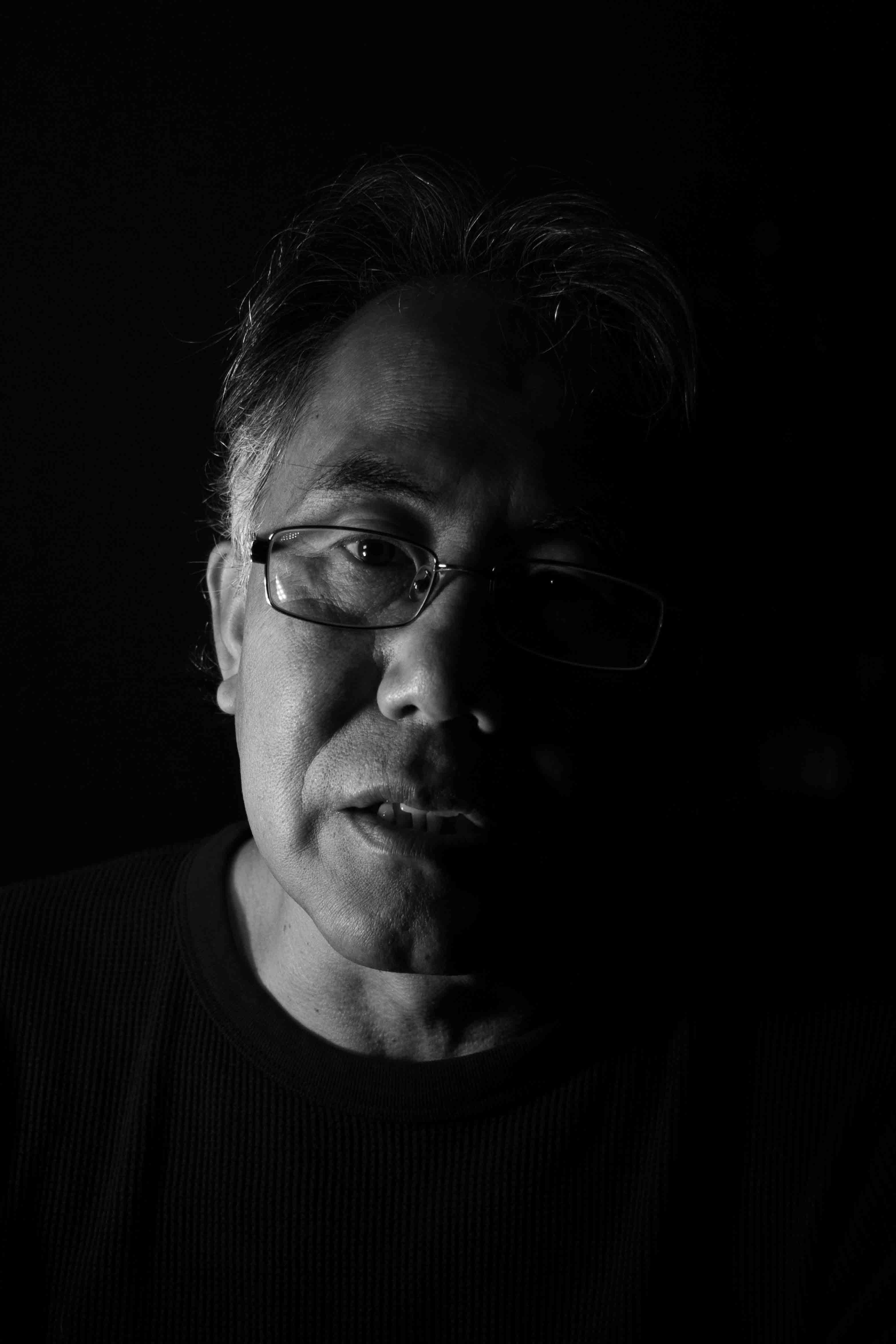
Guoyi is a researcher focusing on water, climate change and disaster risk reduction, particularly focusing on the role of China.
Frustrated: Despite his calm presence, he describes at length how frustrated he is with the state of the planet and humanity’s poor response: “you keep hearing the same message again and again, but mistakes keep being made”. He tells me of his frustrations with the way that China is described – confrontational and accusatory – “any solution has to involve China!”. But he manages to stay calm by an inherent belief that perhaps there is some logic to the way things are. This calmness, he tells me, can perhaps be traced back to his Taoist roots, and he explains an old Chinese adage about the sky falling that reflects the benefits of not worrying about things outside your control.
Disastrous: Some experts believe that the most likely outcome for humanity will be very narrowly escaping total disaster, he tells me: “and we are already entering a time where we are seeing all kinds of disasters”. Again, he tells me that he takes comfort from the fact that we may need such disaster to get to a tipping point where things are forced to change.
Faithful: He tells me that we just need to have faith that we will pull through. He takes motivation from finding his own meaning in what he does, working towards open dialogue and trying to understand one another: “sometimes, we’re too wrapped up in whether we are making a difference. But as long as I see meaning in what I do, that’s good enough motivation for me to get up every day and do it.”
He tells me he feels hope – that it is implicitly encompassed in faith: “this enduring power of human survival – that’s where my hope lies.”
Frustrated: Despite his calm presence, he describes at length how frustrated he is with the state of the planet and humanity’s poor response: “you keep hearing the same message again and again, but mistakes keep being made”. He tells me of his frustrations with the way that China is described – confrontational and accusatory – “any solution has to involve China!”. But he manages to stay calm by an inherent belief that perhaps there is some logic to the way things are. This calmness, he tells me, can perhaps be traced back to his Taoist roots, and he explains an old Chinese adage about the sky falling that reflects the benefits of not worrying about things outside your control.
Disastrous: Some experts believe that the most likely outcome for humanity will be very narrowly escaping total disaster, he tells me: “and we are already entering a time where we are seeing all kinds of disasters”. Again, he tells me that he takes comfort from the fact that we may need such disaster to get to a tipping point where things are forced to change.
Faithful: He tells me that we just need to have faith that we will pull through. He takes motivation from finding his own meaning in what he does, working towards open dialogue and trying to understand one another: “sometimes, we’re too wrapped up in whether we are making a difference. But as long as I see meaning in what I do, that’s good enough motivation for me to get up every day and do it.”
He tells me he feels hope – that it is implicitly encompassed in faith: “this enduring power of human survival – that’s where my hope lies.”
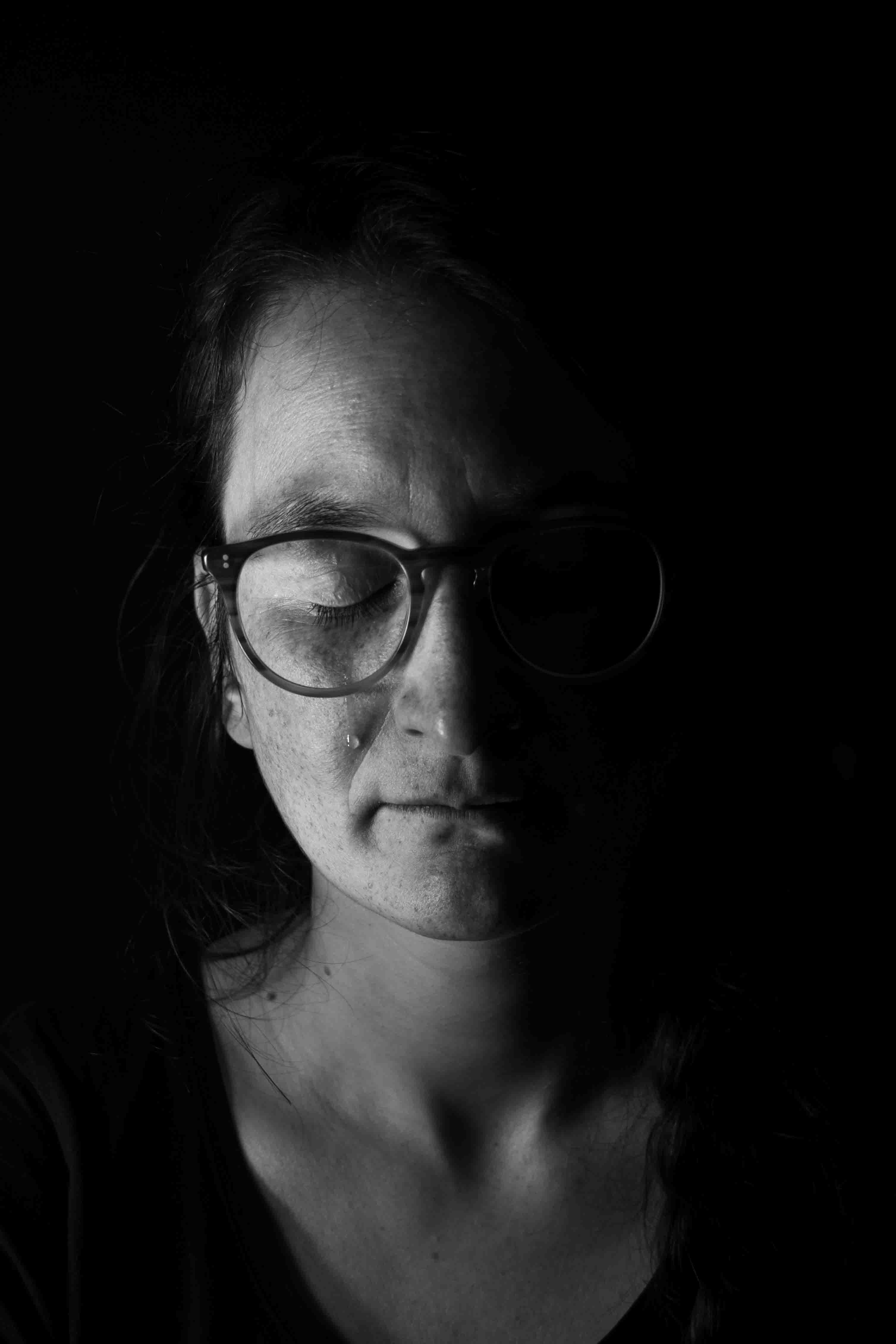
Claudia researches the politics and practicalities of how economies across the world can be made more sustainable as they transition away from fossil fuels.
Sad: Her sadness is clear from the outset: “It’s not that we don’t know what to do. We don’t have the exact solutions for every part, but we know the bigger part. It’s just not happening”. “The sadness comes in waves”, she says through tears, “Being focused on one thing can help to keep it aside, but only temporarily. I feel I can’t live my life – why should we even consider not having kids? We’re not fully free – I envy people who don’t know as much as I do…”
Disgusted: She tells me she is disgusted by the greed and hypocrisy in the system: “The greenwashing disgusts me – so much smart thinking is used to get around policies and recommendations. Why can’t we use that intelligence to make the world better?”
Determined: “I have this determination to continue to improve”, she explains, “Doing my research, trying to live better – little by little. It’s just overwhelming to try to do it all at the same time.”
“I do feel hope”, she says, “But the kind of ambition level we need… that is like grieving for me. We’re losing hope for 1.5 degrees – even 2 seems more challenging. The hope is that we achieve the least bad of the possible alternatives.”
Sad: Her sadness is clear from the outset: “It’s not that we don’t know what to do. We don’t have the exact solutions for every part, but we know the bigger part. It’s just not happening”. “The sadness comes in waves”, she says through tears, “Being focused on one thing can help to keep it aside, but only temporarily. I feel I can’t live my life – why should we even consider not having kids? We’re not fully free – I envy people who don’t know as much as I do…”
Disgusted: She tells me she is disgusted by the greed and hypocrisy in the system: “The greenwashing disgusts me – so much smart thinking is used to get around policies and recommendations. Why can’t we use that intelligence to make the world better?”
Determined: “I have this determination to continue to improve”, she explains, “Doing my research, trying to live better – little by little. It’s just overwhelming to try to do it all at the same time.”
“I do feel hope”, she says, “But the kind of ambition level we need… that is like grieving for me. We’re losing hope for 1.5 degrees – even 2 seems more challenging. The hope is that we achieve the least bad of the possible alternatives.”

Aaron is an interdisciplinary scientist, science communicator and environmental campaigner working on the interface between reason and emotion in communication strategies related to the climate crisis. He was recently arrested as part of a group of scientists protesting against his government's climate policies.
Angry: He tells me he wasn’t an angry person growing up: “But the more I sit with it - what’s being done - I’m filled with outrage, indignation, and ultimately righteous rage. Politicians, they are the real villains here. I want to hold them to account, for justice to be done - I’m not the criminal, they are the ones who are wrong! I have to be brave and to be brave I have to be angry. It’s easier for me to do because the science is so clear.”
Bewildered: “On a daily basis I look around and see business as usual and I wonder how we got into this mess”, he explains. “This bewilderment is sapping away at me as society carries on. I have to maintain my beliefs in the face of everyone else acting as if I’m crazy.” He tells me he feels very lonely, alienated. “It feels like we’ve been abandoned. The systems you think would be there to look after us - they don’t exist. It all seems so bizarre and absurd.”
Anguished: He struggles to put this one into words at first, “It’s just so horrible. I grew up on David Attenborough documentaries. But it’s so painful to see it destroyed. We’re not only doing harm - there are pockets of people healing, but it’s so overwhelmed by the destruction.” He tells me that it makes it hard to be in the wild places he loves. “I feel hurt everywhere I look. I just wish everyone could feel a connection to nature. Then they would fight as hard as I am.”
I ask him if he feels hope: “I think hope is a dangerous emotion - what are we hoping for, that it will be solved for us? If you mean an active hope, then I am hopeful that if enough of us did these things, mobilising, protesting. If we can build the momentum, it will spread - we can amplify each other. That’s the belief I have, that our actions ripple out. This is a battle - we have to organise to build counter power, and I’d rather spend all my life trying than think I hadn’t done enough. That’s my act of love for the world.”
Angry: He tells me he wasn’t an angry person growing up: “But the more I sit with it - what’s being done - I’m filled with outrage, indignation, and ultimately righteous rage. Politicians, they are the real villains here. I want to hold them to account, for justice to be done - I’m not the criminal, they are the ones who are wrong! I have to be brave and to be brave I have to be angry. It’s easier for me to do because the science is so clear.”
Bewildered: “On a daily basis I look around and see business as usual and I wonder how we got into this mess”, he explains. “This bewilderment is sapping away at me as society carries on. I have to maintain my beliefs in the face of everyone else acting as if I’m crazy.” He tells me he feels very lonely, alienated. “It feels like we’ve been abandoned. The systems you think would be there to look after us - they don’t exist. It all seems so bizarre and absurd.”
Anguished: He struggles to put this one into words at first, “It’s just so horrible. I grew up on David Attenborough documentaries. But it’s so painful to see it destroyed. We’re not only doing harm - there are pockets of people healing, but it’s so overwhelmed by the destruction.” He tells me that it makes it hard to be in the wild places he loves. “I feel hurt everywhere I look. I just wish everyone could feel a connection to nature. Then they would fight as hard as I am.”
I ask him if he feels hope: “I think hope is a dangerous emotion - what are we hoping for, that it will be solved for us? If you mean an active hope, then I am hopeful that if enough of us did these things, mobilising, protesting. If we can build the momentum, it will spread - we can amplify each other. That’s the belief I have, that our actions ripple out. This is a battle - we have to organise to build counter power, and I’d rather spend all my life trying than think I hadn’t done enough. That’s my act of love for the world.”
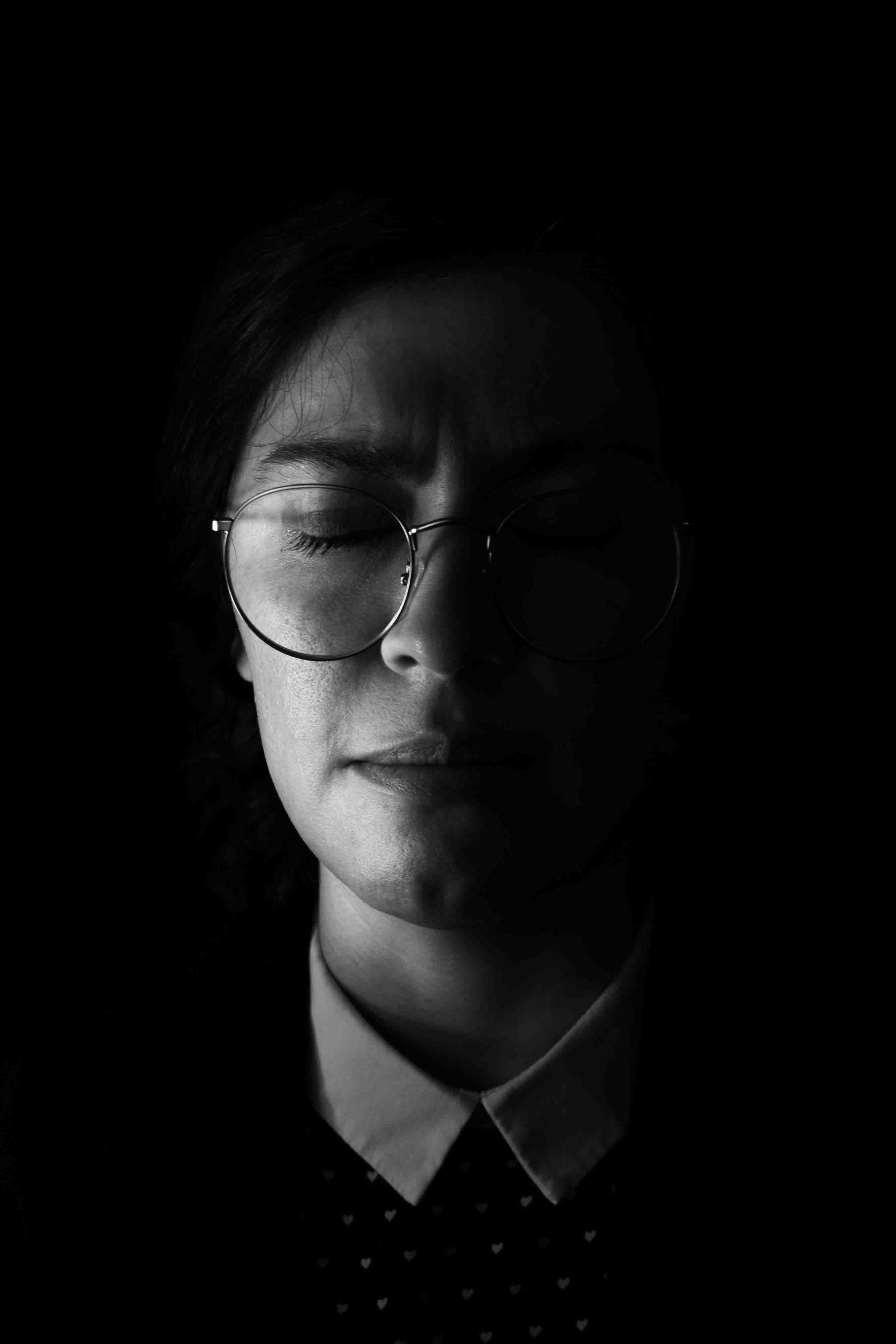
Sara is a researcher working in the field of future studies – building scenarios for how the future might look and making decisions under uncertainty.
Frustrated: She tells me that she feels frustrated reading IPCC reports every few years, seeing scientists loudly and clearly saying this is a crisis because the level of ambition of governments and corporations is so low: “it’s not enough – what makes me frustrated is how far we are from where we need to be!”
Powerless: “Five years ago, I was hopeful that we could still do something about the planet”, she explains, “but now we have so much inequality and inaction. The last five years have made me feel powerless. It feels as though it doesn’t matter what I do – at the end of the day it doesn’t change anything.”
Guilty: She explains that she lives in a constant state of guilt: “it’s always there, no matter what”. She tells me that she tries hard to live sustainably in every part of her life – but there’s always more she could do. “I spend hours checking labels in grocery shops!”. Along with this Western guilt about climate change and sustainability, she tells me she also has survival guilt coming from Iran, “things there are getting much worse”, she says. She also explains that she finds it hard to talk to friends about sustainability: “nobody wants to go grocery shopping with me anymore.”
I ask her if she feels hope: “I don’t feel hopeful now about the future state of the planet. All we can do is our best to control the damage, but things are going to get worse. There are no alternative futures anymore, there is one future and we’re doomed in it.”
Frustrated: She tells me that she feels frustrated reading IPCC reports every few years, seeing scientists loudly and clearly saying this is a crisis because the level of ambition of governments and corporations is so low: “it’s not enough – what makes me frustrated is how far we are from where we need to be!”
Powerless: “Five years ago, I was hopeful that we could still do something about the planet”, she explains, “but now we have so much inequality and inaction. The last five years have made me feel powerless. It feels as though it doesn’t matter what I do – at the end of the day it doesn’t change anything.”
Guilty: She explains that she lives in a constant state of guilt: “it’s always there, no matter what”. She tells me that she tries hard to live sustainably in every part of her life – but there’s always more she could do. “I spend hours checking labels in grocery shops!”. Along with this Western guilt about climate change and sustainability, she tells me she also has survival guilt coming from Iran, “things there are getting much worse”, she says. She also explains that she finds it hard to talk to friends about sustainability: “nobody wants to go grocery shopping with me anymore.”
I ask her if she feels hope: “I don’t feel hopeful now about the future state of the planet. All we can do is our best to control the damage, but things are going to get worse. There are no alternative futures anymore, there is one future and we’re doomed in it.”